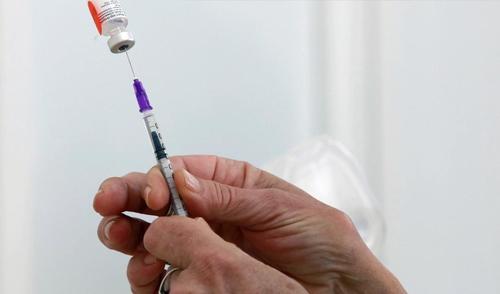Doctors Endorse Delay Of 2nd Pfizer Jab Even As New Research Shows Low Efficacy Against South African 'Mutant'
18 February, 2021
Following a flurry of data suggesting the first generation of COVID vaccines may not be as effective against certain COVID mutations, particularly a mutant strain first identified in South Africa, new "research" is suggesting patients may not even need a second dose of Pfizer's COVID-19 jab - or at least it could be delayed "in order to cover all priority groups as the first one is highly protective," according to two Canada-based researchers, who made the statement in a letter published in the New England Journal of Medicine.
Even so, new lab study has just been released Thursday suggesting that the Pfizer-BioNTech jab "stimulated lower levels of neutralizing antibodies" against the SA mutant, and that the variant could reduce the efficacy of the jab by as much as two-thirds.
All of this comes as the UN turns up the pressure on its push for a global vaccination program, via the WHO and its Covax initiative, presumably.
But according to the doctors writing in the NEJM, the Pfizer jab had an efficacy of 92.6% after the first dose, Danuta Skowronski and Gaston De Serres said, based on an analysis of the documents submitted by the drugmaker to the FDA.
Pfizer responded by saying alternative dosing regimens of the vaccine had not been evaluated yet and that the decision resided with the health authorities. As one might imagine, there are "differences of opinion" as to what should be done, as some experts claim that the efficacy data so far is enough to justify a "flexible" dosing schedule. We guess sometimes "the science" isn't always conclusive. In their letter, the doctors mentioned above the efficacy data would justify second-jab delays to increase supplies. Meanwhile, another group of doctors wrote into th NEJM to share more results showing the Moderna jab is also less effective against the South African variant.
As supplies of the vaccines remain stretched incredibly thin worldwide, the EU earlier this week clinched a deal for hundreds of millions more doses of the Pfzier and Moderna jabs. But even in the US, officials are looking for reasons to allow a delay in the second "booster" jab, as politicians like Joe Biden scramble to meet their promises on vaccination numbers.
Even the US CDC, which warned Britain against experimenting with intervals weeks ago, is now considering offering the exact opposite advice.
Meanwhile, vaccinemakers are already developing next-gen shots that they say will offer more protection against the COVID-19 variants.




No comments:
Post a Comment
Note: only a member of this blog may post a comment.